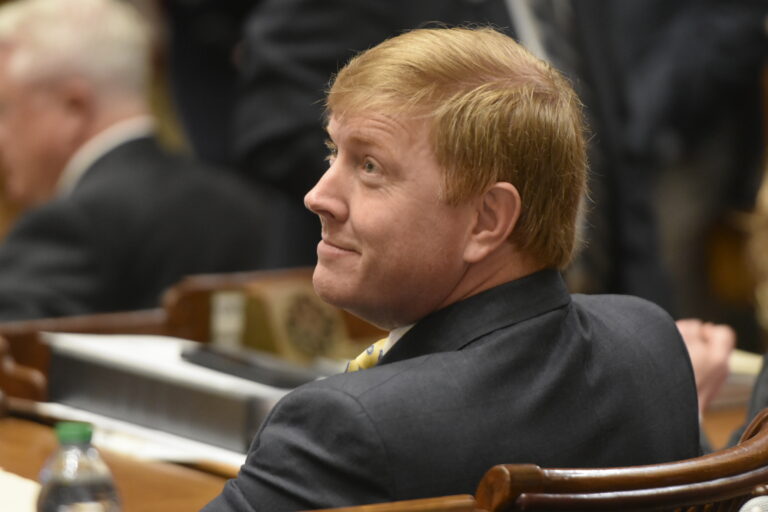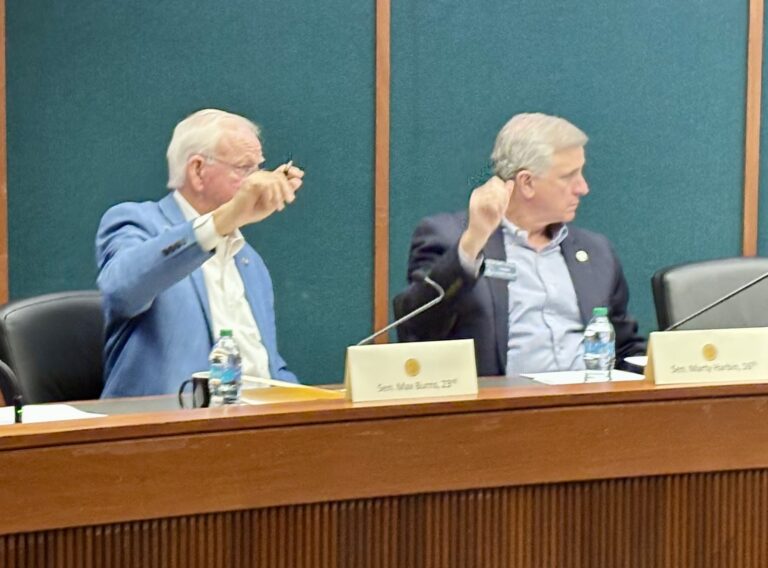
ATLANTA (Georgia Recorder) — Unless something out of the ordinary happens, the Georgia Legislature only meets for 40 days each year over the course of about three months.
The last day of the session is called sine die, which is Latin for “without a day,” because the lawmakers adjourn without a date set for their next meeting. The final day for this year’s session is April 4.
The buildup to sine die is always dramatic, with legislators scrambling to get their bills heard and passed. Sometimes, they can even get a little sneaky by reviving legislation that, based on procedure, should not be able to pass.
Issues important to Georgians like gun storage and school safety as well as whether diversity, equity and inclusion should be taught in schools could be decided this week. Lawmakers also still have to hash out an agreement on a spending plan for next year.
Here are some of the other major pieces of legislation to watch out for as the Gold Dome’s final countdown begins.
RFRA
Republican lawmakers have been trying for a decade to pass a statewide religious freedom bill, but those efforts have fallen short amid outcry from LGBTQ advocates.
This year, a RFRA bill – short for Religious Freedom Restoration Act – is just about as close to navigating the Legislature as it’s ever been.

Acworth Republican Sen. Ed Setzler has shepherded the RFRA bill, Senate Bill 36, through the senate as well as a couple of contentious House committee hearings. A successful vote in the House would put the bill on Kemp’s desk.
Setzler says the bill would give religious Georgians the same protections from state and local governments that they get from the First Amendment on the federal level.
Opponents say that because Georgia does not have a comprehensive civil rights law, a RFRA bill would allow business owners who have faith-based beef with LGBTQ people to refuse to serve them.
Transgender bills
Depending on how the week goes, transgender Georgians could lose the rights to play on girls’ school sports teams, obtain puberty blockers or receive gender affirming care from the state health care plan.
The session began with competing House and Senate bills aimed at protecting women’s sports by keeping transgender women out of them.
Senate Bill 1 now seems to be the more likely bill to pass. It would prevent students designated male at birth from playing on teams for girls or women from K-12 through college in both public and private schools. It would also impose gender-based restrictions on locker rooms, changing facilities and restrooms. It does not include additional measures that were originally part of the House plan that remove references to gender from state code.

Transgender adults who work for the state government or their dependents could lose the ability to get gender-affirming care like surgeries or hormone treatments through the state health insurance plan.
Vidalia Republican Sen. Blake Tillery’s Senate Bill 39 would shut that off starting next year.
Tillery said taxpayer dollars should not go to transgender medical services.
Transgender advocates call the bill a mean-spirited attempt to gin up political support that could end up costing more money in lawsuits than it saves.
Whether or not you’re on the state health insurance plan, a specific set of drugs that block sex hormones and can delay puberty could become harder to get next year.
Savannah Republican Sen. Ben Watson’s Senate Bill 30 originally banned puberty-blocking medications outright for transgender minors but was amended in committee to make them more difficult to get. If the bill passes and is signed into law, the drugs could not be prescribed without seeing multiple specialized medical providers.
Because they were amended, SB 30 and SB 1 will need to pass both chambers to have a shot at becoming law. The state House could vote on SB 39 any time before Sine Die, which would set it up for Kemp’s pen.
Pro-LGBTQ advocacy groups have called on supporters to visit the Capitol this week to urge lawmakers to oppose RFRA and the transgender bill, which they are calling the “slate of hate”

Among them were Dianne Canales and Anna Kabir, who work at Druid Hills Primary Care, which provides gender-affirming care.
“Basically, we’re here to advocate for our transgender patients and make sure that the laws that they’re planning to pass are not gonna prohibit them from getting access to health care,” Canales said.
Canales said both SB 39 and SB 30 would affect the patients in their practice.
“We have patients both on that type of insurance and taking the hormones,” she said. “And so passing something that’s going to prevent them from getting coverage, is gonna affect our practice tremendously, but not just our practice, but our community, and our patients. It’s going to have a detrimental impact on their mental health needs.”
Sanctuary cities
Another Tillery bill, Senate Bill 21, targets so-called sanctuary cities by allowing them to be held civilly liable for crimes committed by undocumented migrants.
This has long been a goal of Republican state lawmakers, but last year’s killing of 22-year-old Laken Riley at the University of Georgia ignited calls to emphasize deporting undocumented immigrants. A Venezuelan man immigration authorities say crossed into the country illegally was sentenced to life in prison without the possibility of parole for Riley’s murder.
A bill passed last year in the wake of Riley’s death allows the state to strip funding from cities that do not cooperate with federal immigration enforcement, and soon after he took office in January, President Donald Trump signed a sweeping immigration bill into law named after Riley.
Senate Democrats argued that the bill is cruel and could result in overcrowded jails and lawsuits against cities.
The House can cast a final vote for SB 21 to send the legislation to the governor’s desk.
Elections

Before the session is scheduled to wrap up Friday, lawmakers could likely pass legislation changing state election rulemaking procedures, ban the state from being a member of a multi-state voter list accuracy system and implement other voting law changes.
Last week, Republican legislators advanced this session’s most extensive election bills out of House and Senate committees, after some significant last minute changes were made that its sponsors said should alleviate some criticisms heard during public meetings.
The most sweeping measures were House Bill 397 and Senate Bill 197, which have the same proposals for restricting the State Election Board from rulemaking within 60 days of an election and banning voters from dropping off absentee ballots on the final weekend before Election Day.
The bills also began the state’s transition from participating in the Electronic Registration Information Center, an organization that currently provides two dozen states a database to help maintain accurate voter rolls.






